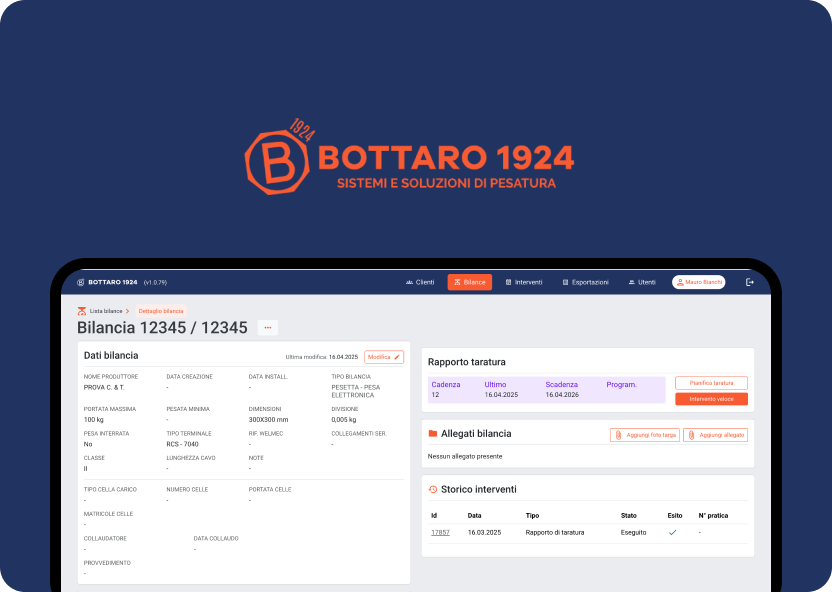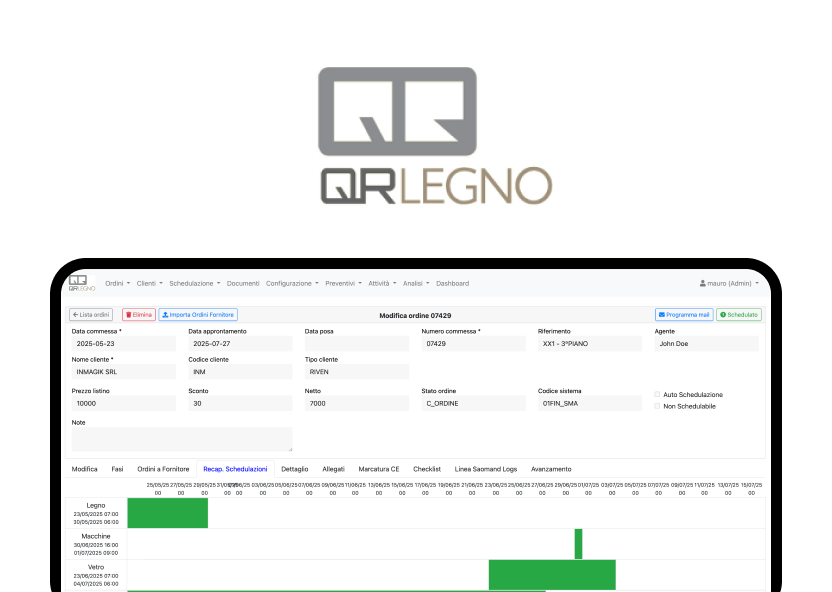The Home Movies Foundation – National Family Film Archive is the first archive in Italy entirely dedicated to the preservation, restoration and promotion of private film and audiovisual heritage and amateur cinema: a legacy of immeasurable historical, social and cultural value.
INMAGIK has developed a web-based management system for cataloguing the audiovisual media managed by Home Movies, which makes it possible to manage all data relating to the various stages of the cataloguing process and the restoration and preservation work carried out on the materials.
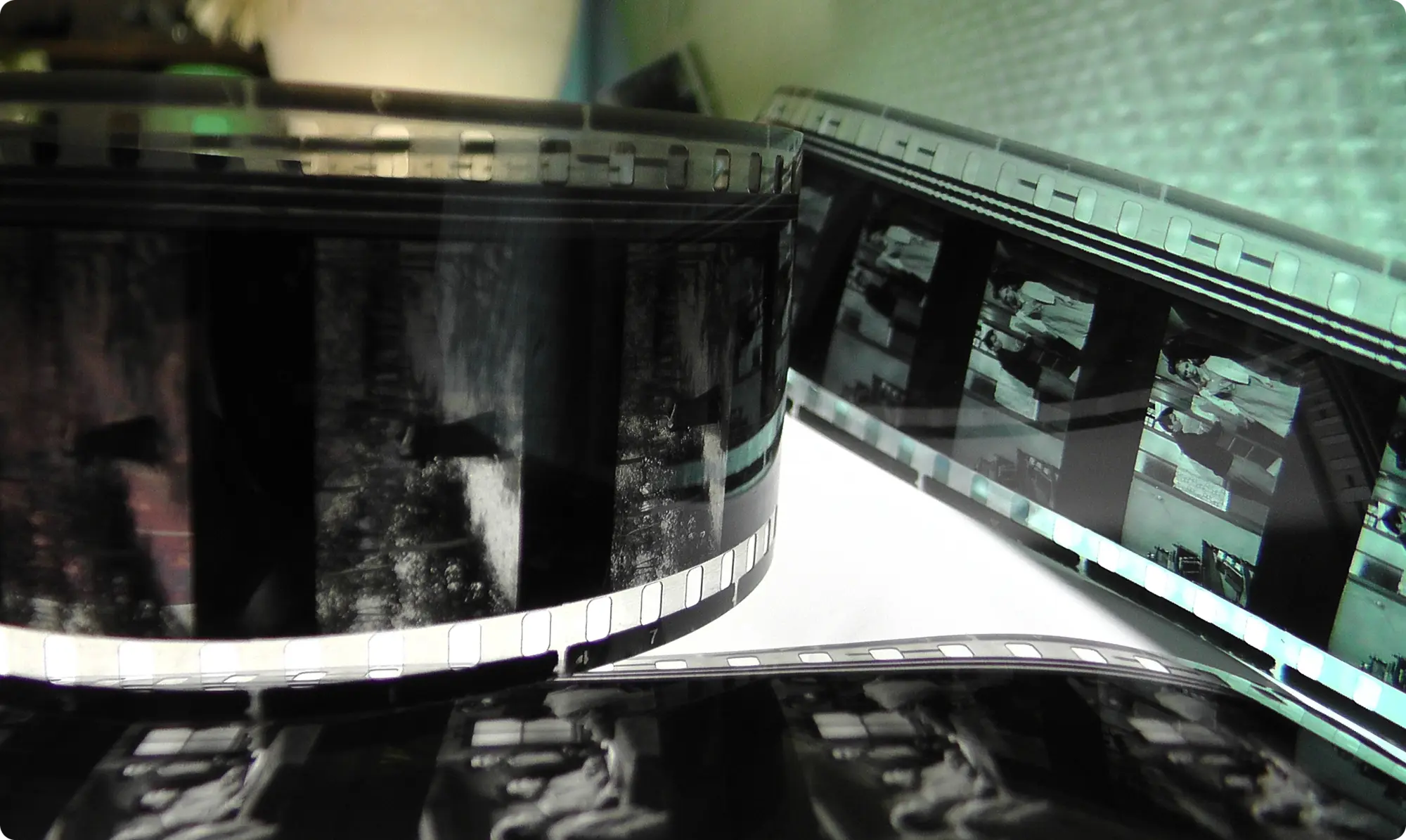
The Home Movies archive is the main tool for managing the catalogue of materials handled by the Foundation, and it is a very important work tool used daily both internally for cataloguing and by third parties for accessing the information.
This tool therefore has to meet specific needs in terms of data collection, since the process of collecting and cataloguing the materials is particularly complex and carried out by different professional figures at different times. The tool must therefore be consistent with the internal cataloguing procedures and be able to store all the information from the various stages.
It was also requested that the system be linked with the archive containing the digitised media, so that the materials can be viewed directly within the database for online access.
We implemented a web-based management system built on a relational database designed for this specific application, with a user interface based on the Material Design framework and several levels of access to information for both internal users and external users. The system is implemented using our open-source stack based on Python and JavaScript.
Inmagik handled both the design of the UX and UI, as well as the parts concerning the structure of the SQL database and the REST APIs. We also managed the data migration from the previous system.
The backend is based on an open-source stack that includes an SQL database, REST APIs for communication with the frontend, and a caching layer.
We used Python and PostgreSQL to implement the application's backend.
The frontend user interface was implemented using the Material Design UI framework, for both desktop and mobile devices.
We used JavaScript and React to implement the application frontend.
The UI was built using the Material Design framework, with the aim of optimizing data entry procedures.
We created every component using Figma.
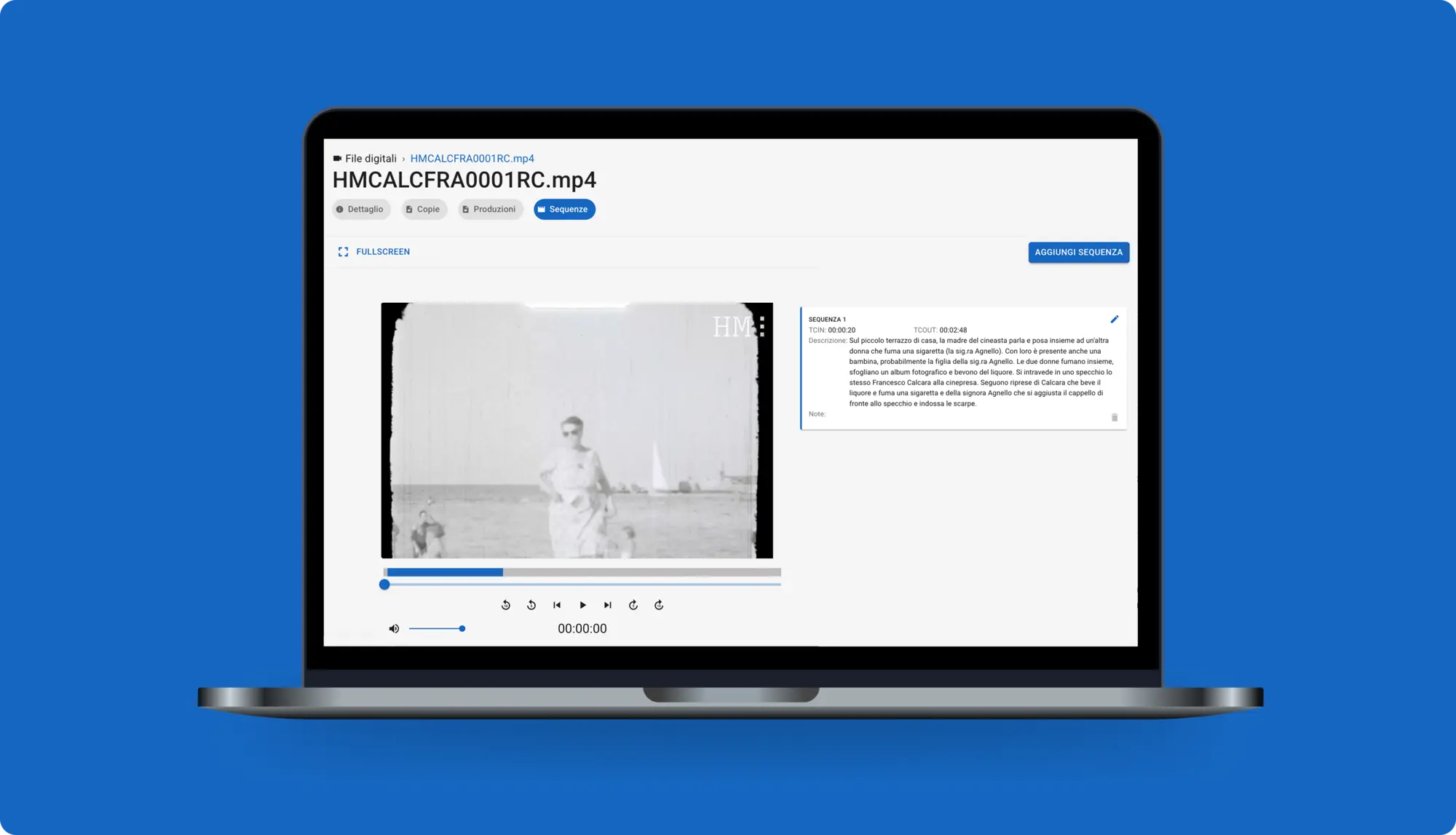
The management system makes it possible to annotate the start, end, and description of scenes while viewing the preview of a film document.
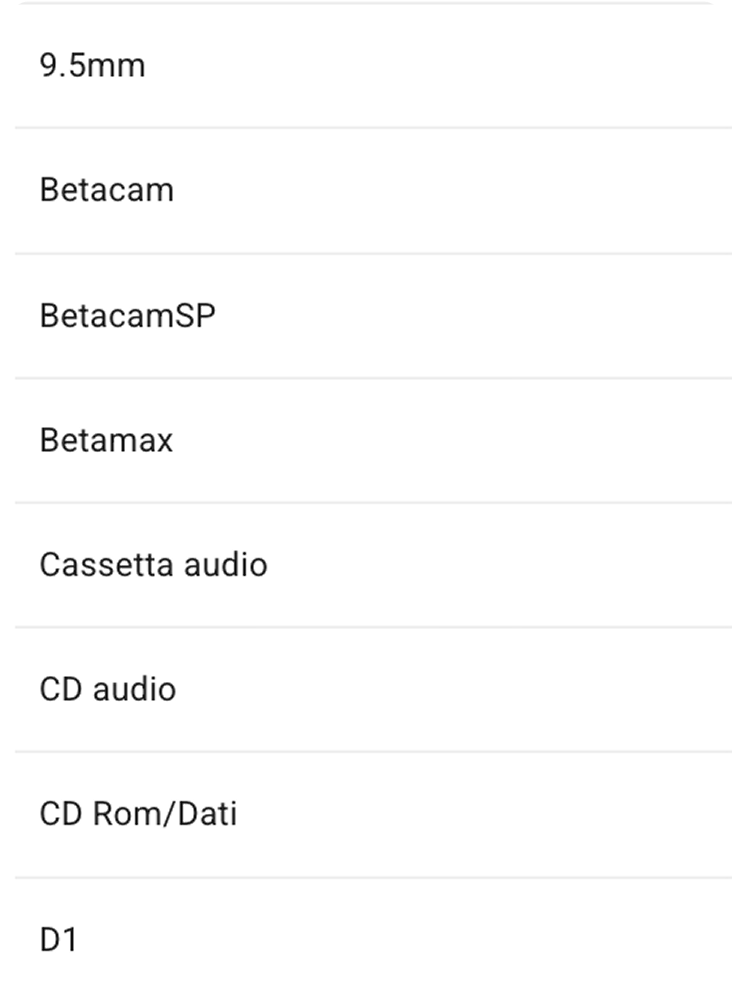
The database makes it possible to catalogue physical media and easily extend the types managed.
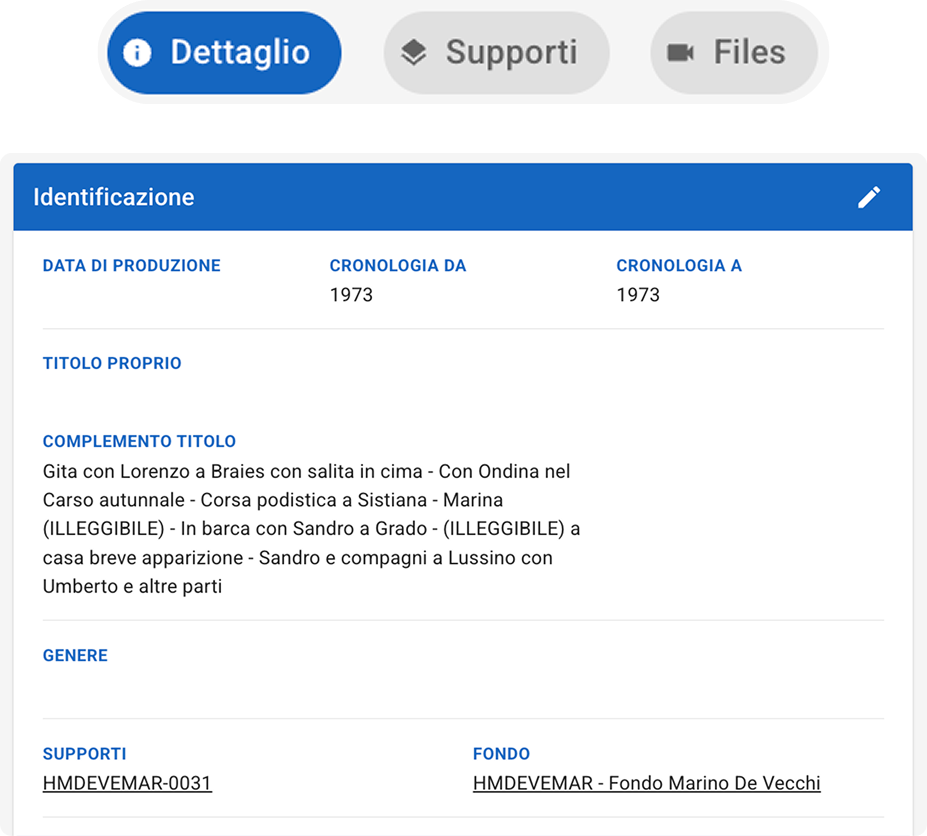
The platform models all the entities specific to the application domain separately and enables intuitive navigation between related items.

The platform makes it possible to import structured data from Excel files.
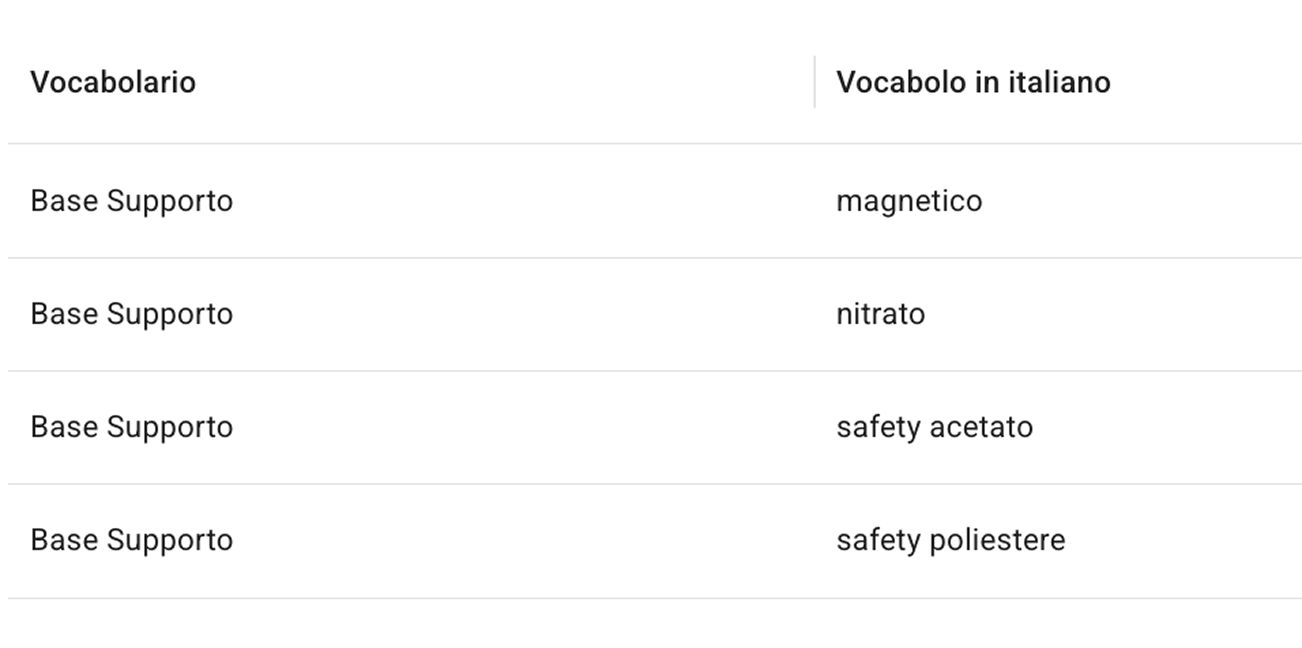
The platform makes it possible to manage categorical vocabularies used to populate certain structured fields, minimising typing errors and ensuring the relational integrity of the data.
